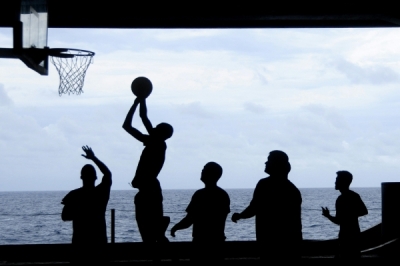Drinking games, although dangerous, continue to be common in college settings. The danger occurs because in this type of “game”, people tend to drink more and more quickly than usual, which makes it difficult to control the amount of alcohol consumed and poses several health risks.
A new study [1], published in December 2023, carried out a systematic review encompassing various scientific research on games involving alcoholic beverages (drinking games) in a university context. In total, 34 surveys on the subject were included, totaling a sample composed of more than 34 thousand participants. Among the variables analyzed, motivations for consumption, associated negative consequences and gender dynamics stand out.
Although there may be great cultural variability between the various drinking game practices, they all involve a social activity that aims to consume heavy alcoholic beverages, whether competitively or non-competitively. The risks in this context are of different types, from a drop in academic performance to serious health consequences, such as unprotected sex, accidents, violence and various other physical and mental health problems.
For this 18- to 25-year-old college population, the prevalence of engaging in drinking games was estimated to be between 65% and 92%, with it being slightly more common among men. What the studies show is that there is a clear perception of the risks associated with heavy alcohol consumption, but that this does not present itself as a limiting factor for participation in games involving this task. Furthermore, such games – and the risks involved – are often considered a “badge of honor”.
An important reason reported for participating in drinking games is to reduce tension and social anxiety. In this sense, some of the studies analyzed point to greater negative consequences in people who have personality traits associated with social anxiety. In addition to this aspect of social tension, another contributing factor to the perpetuation of drinking games is the concept of “Internalization of the College Drinking Culture”. This concept assesses how much individuals in the college setting identify with the drinking culture present in the university environment. Studies indicate that the greater the internalization of this culture, that is, the greater the individual's identification with the drinking culture, the greater the risks and negative consequences associated with participating in drinking games.
Finally, another important factor found in the studies was gender convergence. This concept indicates that the participation of women in drinking games has been equaling the participation of men, and that, therefore, the disparity between genders has been disappearing in this regard, which would be explained by the greater presence of women in the university environment and the change observed in women's relationship with alcohol, as CISA has warned.
In light of these results, the authors highlight the need for more research on the topic of alcohol consumption in the university context, and in particular on consumption in drinking games, given that this practice is associated with several negative consequences. One of the essential points for a better understanding of the topic is to determine which factors most significantly influence the negative consequences resulting from heavy alcohol consumption in drinking games.











